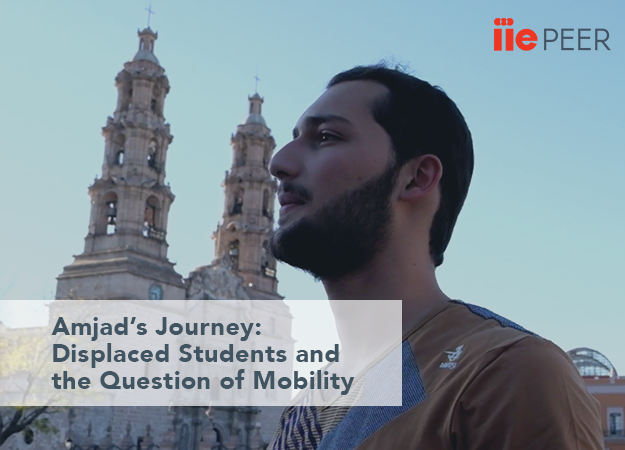
-Written by Nele Feldmann, Head of IIE Student Emergency Initiatives
I remember my first summer camp and the excitement of spending two weeks without my parents. I remember my first time on an airplane, the first time I crossed the Atlantic Ocean, the first time I applied for a passport, and the first time I needed a visa.
I don’t remember the first time I left my native country of Germany to go on a vacation. I imagine I was just a toddler. I asked my parents, they don’t remember either. Growing up in a German middle-class family, I was encouraged to travel, explore, and see what else is out there. Growing up in the European Union and with a German passport, I always enjoyed a lot of freedom to move. The only physical border I remember from my childhood was the border between Germany and France where we spent most of our summers until I grew older. The only border excitement I remember from those days is hiding our dog under a blanket because of a missing immunization records and eventually these physical borders disappeared.
After graduating high school, I enrolled in a Master’s Program at the University of Bonn to study translation for Arabic and French and Political Science. It was during my studies that I had to apply for a visa for the first time in my life. Acknowledging my inability to even have a simple conversation in Arabic after one year of language studies at my university, I decided to spend a summer in Syria to actually be able to talk to people. That summer turned out to be the first of many visits to Syria and the beginning of a deep relationship I maintain with the country until today.
My first trip to Syria was also the first time I ever had to apply for a visa. It was more a formality than anything else. At no point did I think that I wouldn’t get the visa. I sent in my papers, got the visa, boarded the plane and spent the summer in Damascus. Over the next seven years, I would spend time studying and working in Egypt and Syria and although managing visas and residency requirements was always the least enjoyable experience, things always worked out.
When my husband and I moved to the United States, I for the first time in my life experienced what it means to have limited freedom to move because of your immigration status or because of where you were born.
In the world of international education, words like “mobility” and “access” have become real buzz words, but our industry tends to forget that mobility and access largely depend on our socio-economic status and which country issued our passport. Financial resources and passports open borders and often decide whether or not we are able to access an opportunity or not. This is true for many international students, but it is even more true for students from countries of crisis. Countries like Syria.
To date, the Institute of International Education supported more than 500 displaced Syrian students with urgently needed scholarships and funding opportunities to help them continue their studies in a safe environment. But scholarship alone often don’t enable students to continue their tertiary education. From challenges in the application and admissions process, to obtaining the required visa and saving the funds to pay for travel, Syrian and other displaced students face a variety of challenges that stand between them and their university degree.
One student who successfully managed this complex and challenging process is Amjad. Supported by Proyecto Habesha, a non-profit organization based in Mexico with the goal to support Syrian students reconnect to higher education, Amjad was offered a fully funded scholarship to study at a university in Mexico. Amjad also received an IIE PEER Travel Grant to help him cover his visa and travel expenses. When Amjad shared his itinerary with our team, it was a stark reminder of the length Syrian and other students from countries affected by crisis go through to do what so many of us take for granted – get a university degree. Amjad’s itinerary also reminded me that mobility and access mean very different things depending on your background. Hear from Amjad as he details his travels from Syria to Mexico in the below video.
We would like to thank Proyecto Habesha for their incredible work helping Syrian students access higher education and the Open Society Foundations for their generous support of the IIE PEER Travel Grants.

